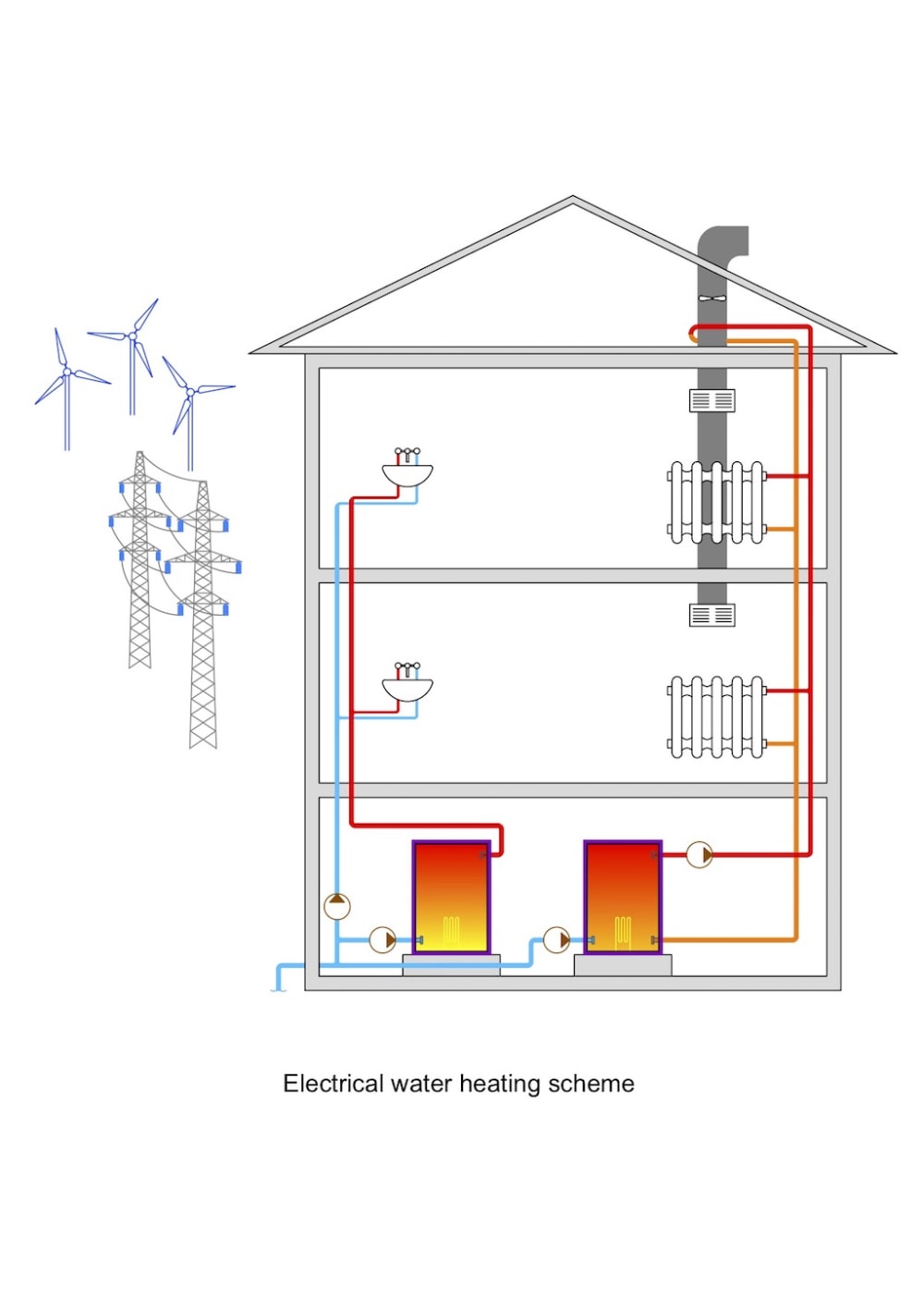In some cold climate areas where infrastructure is not developed sufficiently co-generation plants or even heat-only boiler stations are used to heat buildings. Diesel oil in many cases serves as a source of electric power. Its delivery is too expensive, and unduly delay can lead to power cuts.
At the same time, the highest wind energy potential is concentrated in the northern regions. The main problem is that this source of energy is unpredictable. Moreover, power load in such areas is even less flat in particular due to lack of connection with other power systems.
So, we could use water heating as a powerful and adjustable electric load. Water is a matter with large heat capacity. It would collect energy as heat in heating loop and gradually emit it to spaces to be heated. The main advantage of this idea is that supply schedule can be spread in time in accordance with wind power generation and electric power consumption. This process can be automised. Automated dispatch system could perform real-time calculation and switch on/off the heating system remotely in order to meet supply. Taking into consideration significant energy demand from household heating, it is possible to compensate daily load irregularity as well as unpredictability of wind power generation.
An example of implementation of this idea for a dwelling house is shown in the picture. Two reservoirs with water are installed in a basement. One of them is used to provide domestic hot water and another to feed heating loop. The first one is filled with rather hot water under excess pressure and heating element seeks to maintain set temperature. Water temperature in the second one changes within certain limitations throughout the day. Thus, several flats or a block of flats will be provided simultaneously with hot water and warmth.
Diesel oil exit will contribute to a decrease of electrical energy cost and reduction of harmful emissions. Despite the increase in electricity consumption, households will see the decline in utility payments, owing to cancelled heating fees and reduced cost for a kWh. Preserved quality of heating and lower costs will improve the quality of live. Wind power generation will receive an impulse to further development. In addition, energy transmission losses will be reduced, as power transmission lines will substitute pipelines. What is important is that all the technologies the idea requires already exist and only need establishing a new production.
The proposed idea is easy to be realized and able to get substantial benefits. Nowadays, it is mostly demanded in the northern areas, but there is a good reason that in the future it will be spread at the regions with temperate climate. In sustainably developing society, controllable electric heating is the next phase in development of heating after cogeneration power plant.
Like this entry?
-
About the Entrant
- Name:Nikita Pyzhyanov
- Type of entry:individual
- Patent status:none

